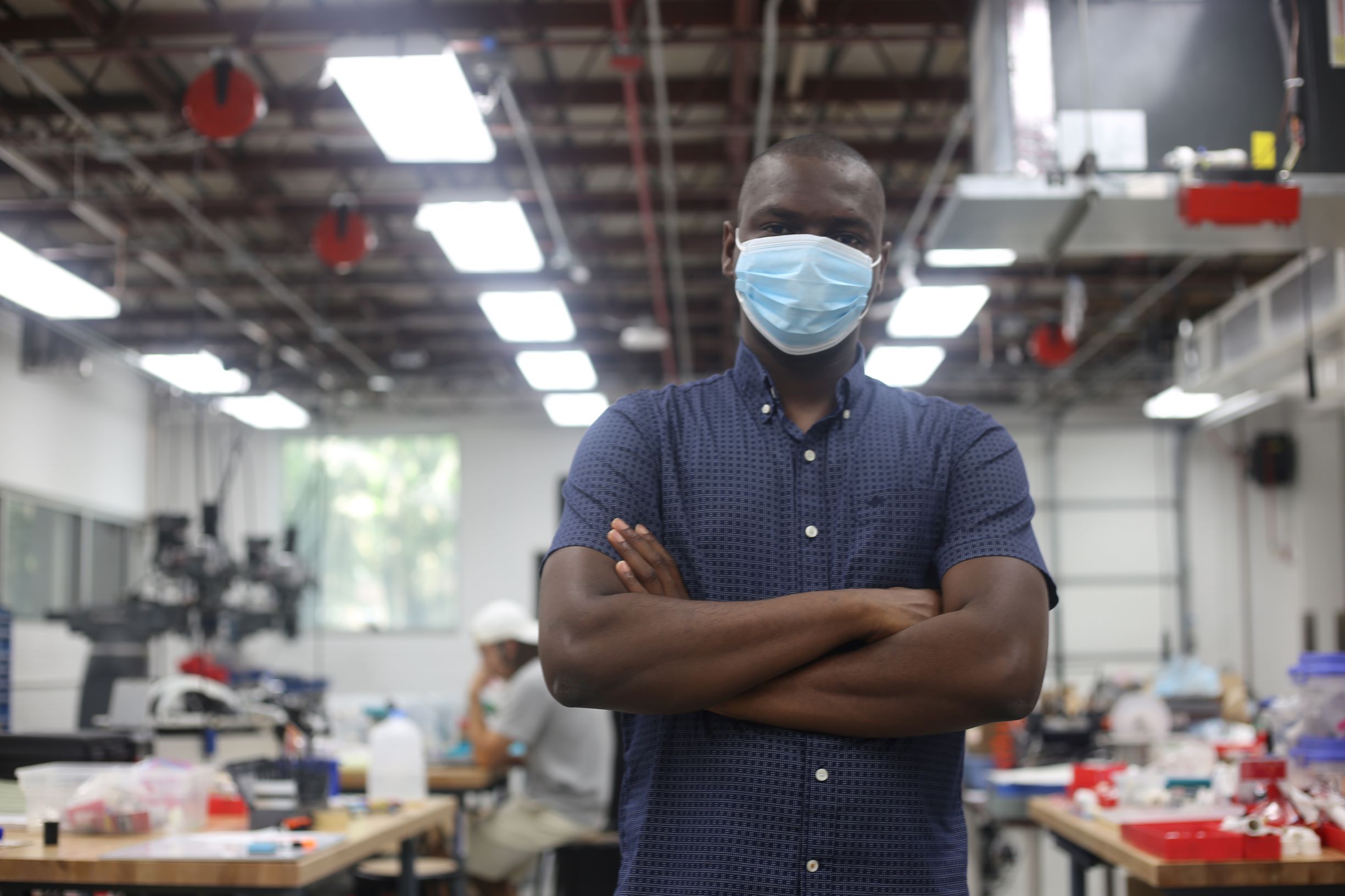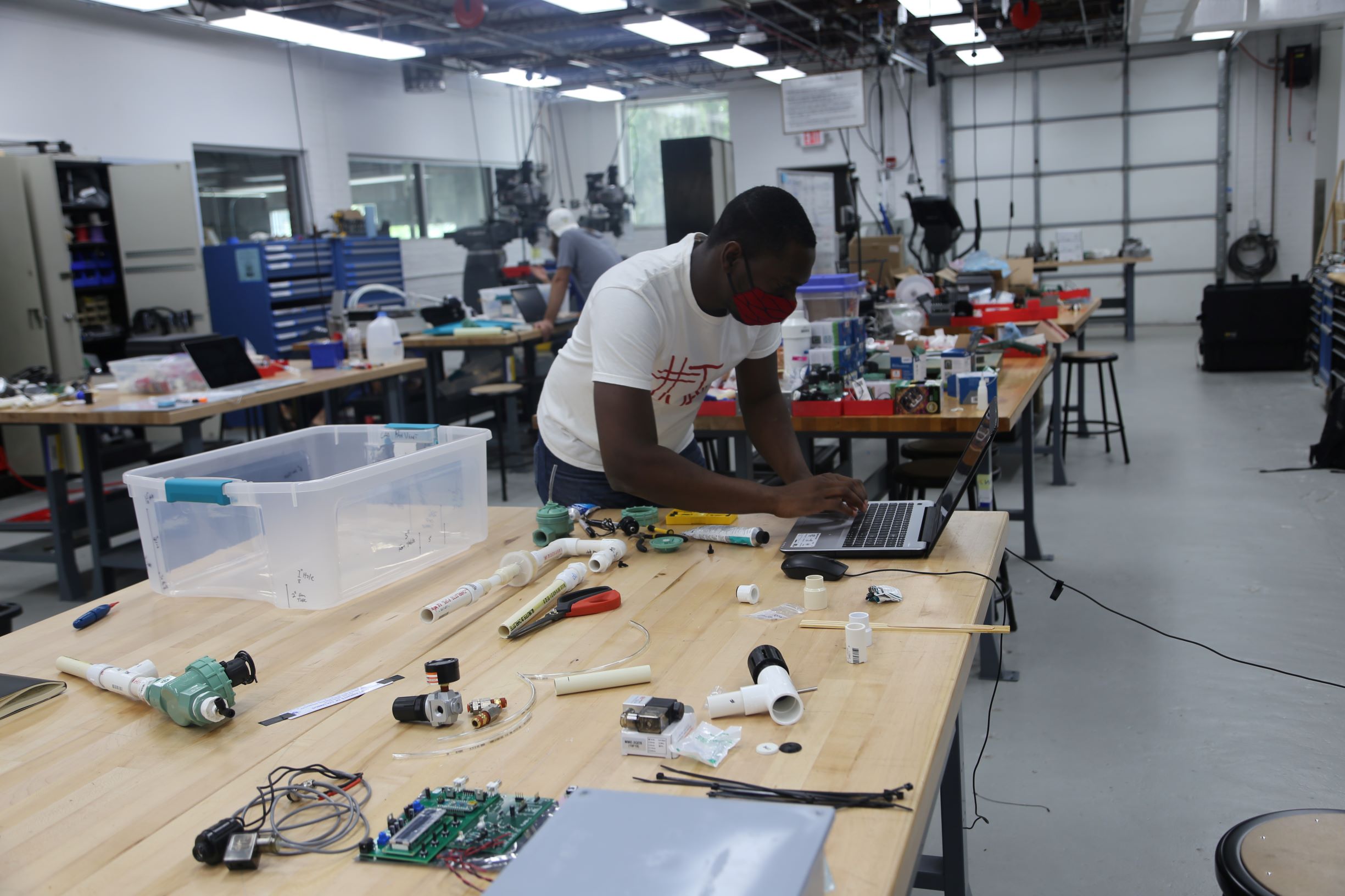On Feb 10th, 2021, Ayobami Edun, a PhD Student in Electrical and Computer Engineering at UF presented at the SASA (Students in African Studies Association) meeting. His lecture was titled, “The 2020 Co-Vent Project: A UF Contribution to the COVID Global Crisis.” The project was supported by the Center for African Studies and the University of Florida Engineering program. At the onset of the pandemic, Edun saw a global need arise when ventilators were needed to treat individuals with COVID. Although his research is not in health, he relied on his skills in engineering and quickly adapted to the pressing situation.

The Co-Vent Project involved ventilator design, assembly, and business outreach. The project is open source and meets the FDA standards as well as global standards. Edun wanted to make a ventilator with a few key features: it should be easy to buy the materials to make it, the materials should be compact, it should be easy to build and easy to use. Edun added that the necessary tools for assembly would cost around $250 dollars from a store such as Home Depot.
The Co-Vent project team conducted stimulation with the device, testing the regulation and the pressure of the air and how the ventilator would work effectively when used with human patients. They also worked with collaborators globally. This was integral in the development of relationships and the exchange of ideas and information about the ventilator. The Co-Vent project received FDA approval. During the summer and fall of 2020, Edun and his team had virtual meetings in English and French about the project. Participation of many local and global institutions also occurred, creating further opportunity to share information about the assembly, design and implementation of the ventilator.
During the talk, a question was posed about the feasibility of an amateur person being able to assemble the ventilator without a background in engineering. Edun responded, stating that if you can use your hands it should be possible and that you don’t have to be an engineer. This project bridged the interface between technology and a global pandemic. The session ended with a great discussion about the feasibility of making the ventilator, his engagement with other groups at UF and where the project has landed in the current context of the pandemic.
Written by: Karen Awura-Adjoa Ronke Coker